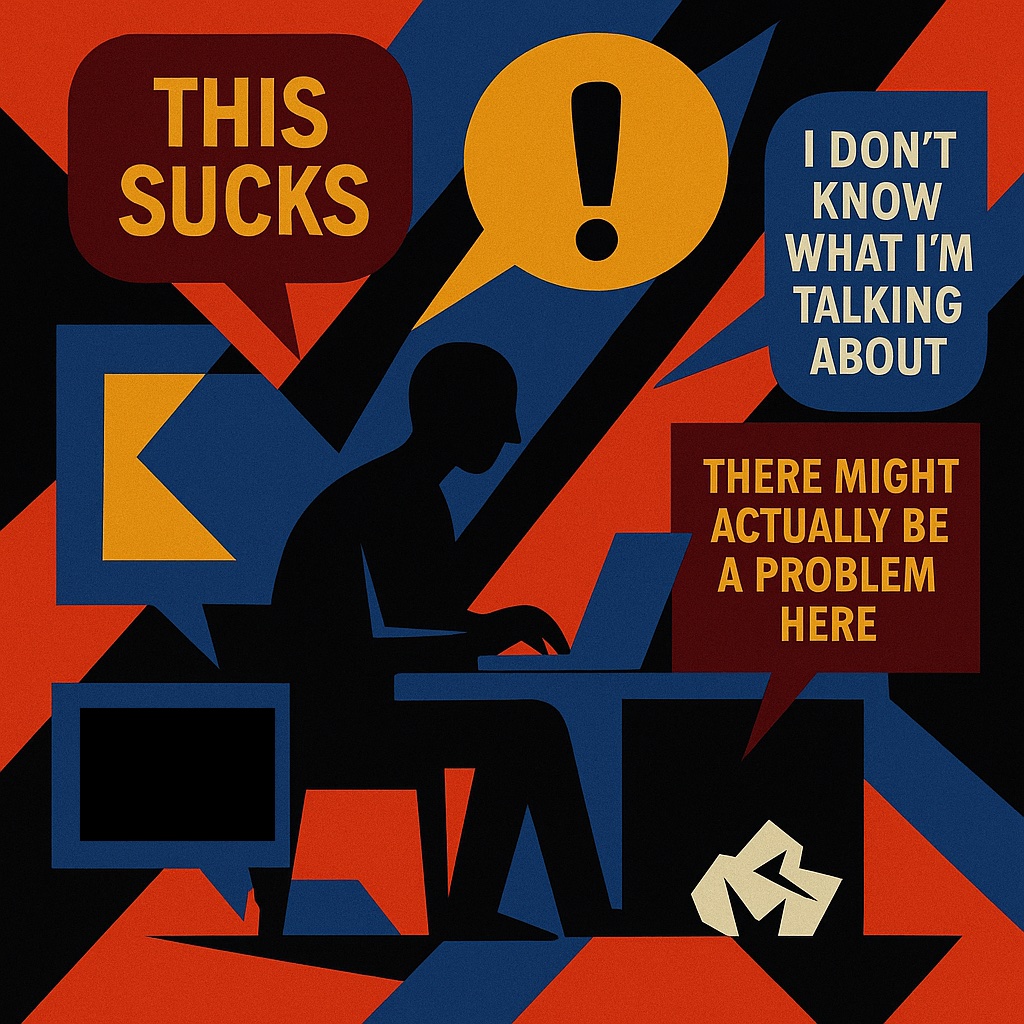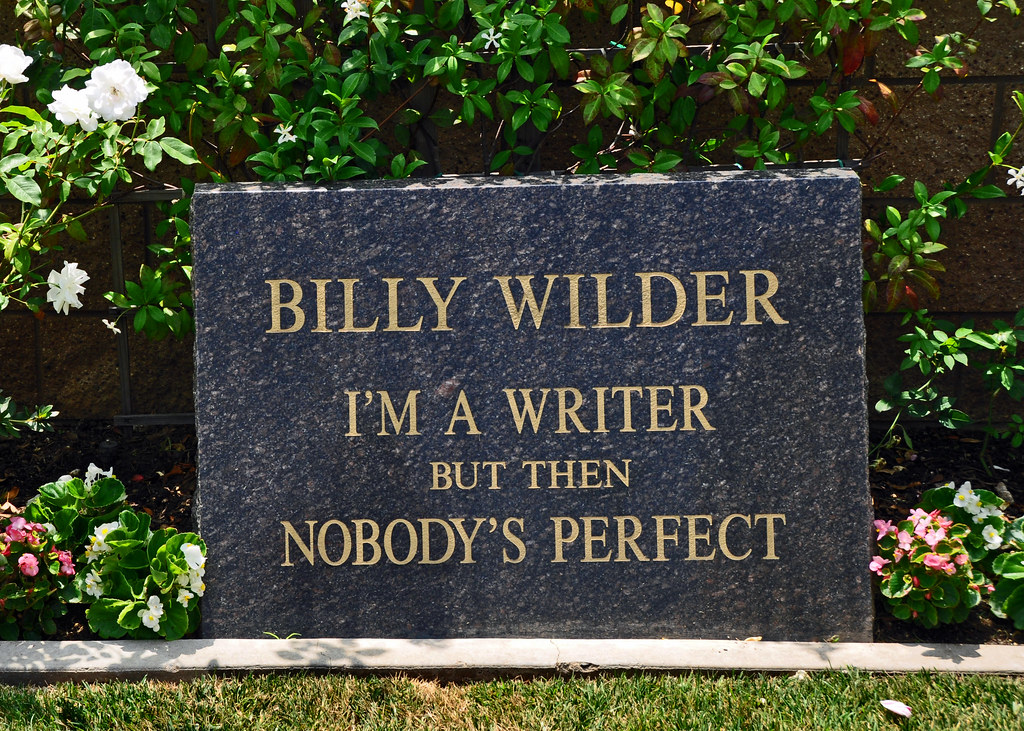3 Tips to Deal with Bad Feedback on Your Screenplay

You send off your screenplay with a mixture of hope and dread—and what comes back feels like a punch to the gut.
The notes are uninspiring, off-base, or just plain wrong. some are just insulting. Perhaps the reader simply didn’t get it. Perhaps s/he did.
Either way, you’re now stuck with a delicate challenge: how to deal with feedback that feels bad–at least to you.
After all, you put your hard work–part of your soul–into your script. You obsessively revised before you let any other eyes go over it. Now, instead of the praise your expected, your most vulnerable ideas got a swift kick in the junk.
Of course bad feedback hurts. It probably hurts most of all because it’s part of the process of getting better.
That’s not to say that the feedback itself is inherently useful. It also doesn’t mean that this ought to derail the entire project or torch your self-esteem.
With this in mind, let’s explore three essential tips for processing painful, confusing, or simply useless notes so that you can move forward as a screenwriter.
1) Take the Feedback at Face Value—Even If It’s Wrong
Your first reaction is almost certainly to argue back. Dismiss the person. Conjure ad hominem attacks. Tell yourself “they just don’t get it.” Perhaps they do not, in fact, get it.
However, to get the most use out of any feedback, pretend they do understand.
This is of course just for a moment–for the sake of analysis–and assume that the person giving you feedback is absolutely correct. That doesn’t mean they are in reality, but this assumption creates an opportunity for you.
Ask yourself:
- Does this note point to a legitimate issue—even if the suggestion for fixing it is off-base?
- Is there a broader feeling underneath the feedback: confusion, boredom, lack of emotional engagement?
- If they clearly misread something, does that suggest that your intentions are not made clear?
Imagine a reader says, “I didn’t care about the protagonist. She’s too cold.”
Your instinct might be to defend her, understanding she’s guarded because of trauma. But if your audience doesn’t feel her inner conflict, this means a problem with the writing—not the reader.
Don’t dismiss this sort of note. Take it as a signpost. You don’t have to rewrite her entire backstory, but perhaps you need a better description of her emotional stakes: one more scene, or perhaps even one more line of dialogue, or a single moment of hesitation, that hints at her vulnerability.
This isn’t about blindly following dumb feedback. It’s developing curiosity.
Even if the feedback seems asinine, arrogant, or fundamentally out of step with your vision, treat it as a data point. Your reader experienced something. Figure out what that something was. It’s not about using this person’s suggested fix–but their confusion at this point might point to a place that needs extra work.
2) Never Feel Obligated to Use Feedback—You Don’t Owe Anyone Anything
There is no rule that says you must accept feedback.
You don’t have to please your writing group. You don’t have to cater to contest readers. You don’t even have to impress a script consultant you paid $500 to (and dog knows I’ve been through that). You are the only one responsible for your script.
Your script lives and dies by your decisions.
With that in mind, you must discern between helpful notes and harmful ones. Some feedback will want to turn your thriller into a rom-com.
Some feedback will tell you to change your ending, remove characters, or simplify themes you love. Many people, even the consultants (been there), want to turn your story into their story.
It’s okay to say “no.”
In fact, it’s necessary. Great writing has a point of view. Developing your voice means learning when to protect your work. Not defensively, but with intention.
Here’s the caveat: still, you need to remain humble.
Even if someone gives you absolute garbage notes, they fucking well took time to engage with your work. That’s a gift. Be gracious.
Thank them. Don’t argue, don’t explain, don’t justify.
You can scream into your pillow later—but keep your dignity intact, and don’t burn bridges.
Another good thing to consider here is that sometimes you just need to hear a bit of feedback at the appropriate time: a note that seems terrible now might well make sense six months later.
So rather than dismiss it out of hand, keep the feedback in your periphery. Store the note somewhere. It might come in handy after some time away from the script.
A good rule of thumb:
- If the feedback feels confusing, revisit it later.
- If it feels painful, ask yourself why. What does this reveal about you?
- If it feels totally wrong, perhaps it is. Just be sure you’re not dismissing it simply because it’s making your ego cry like a butthurt toddler.
Feedback is not a test. It’s a place you go to pick and choose what makes your script better. Take what works and leave the rest.
(And don’t use that tired Bruce Lee quote. You sound like an idiot.)
3) Get Feedback from Numerous People (and Seek Patterns)
One person saying “I don’t get it” is a single data point. Two people saying “I don’t get it is a line,” and it’s pointing in the wrong fucking direction.
Never rely on a single person’s judgment—good or bad.
It is vital to get feedback from multiple readers, ideally ones with diverse perspectives, backgrounds, and tastes. If possible, ask for notes from:
- A fellow screenwriter
- A casual movie fan
- Someone in the industry
- Someone totally outside your world (a “cold reader”), like a friend of a friend
Also, if you’re writing about someone whose world you don’t know absolutely intimately, find someone with that background or profession and see if you can get some thoughts from this person.
Each person analyzes through her own lens—and that’s exactly what you want. Your job isn’t to please them all, but always be on the lookout for repetition.
If five different people say Act 2 is slow, I’d wager Act 2 is actually slow. If everyone is confused about the same twist, maybe this twist does not land clearly. If several people say your protagonist is passive, this might be the case.
The flipside:
One person says your tone is “too weird” while others love it? That might just be a taste mismatch.
The goal is to separate signal from noise.
When feedback aligns across multiple sources, it usually points to a legitimate gap. That’s the stuff to fix. That’s the gold.
So… as you get used to gathering diverse feedback, bad notes don’t sting as much.
After all, no single comment has too much power. It becomes part of a wider data set—and you become better at interpreting patterns.
Also, you’ll soon start to recognize who gives good notes. Some readers are great at spotting story logic.
Others feel emotional arcs. Others are pros at dialogue. Learn who to trust for what. Build a circle of feedback allies and lean on them for their strengths.
Emotional Resilience
Bad feedback still hurts. It can shake your confidence, slow your momentum, or make you want to quit.
That’s normal. It means you care. But don’t let the bastards win.
It needs to be stated:
- Your script is not you
- Your worth as a writer isn’t determined by a particular person’s opinion
- Bad feedback doesn’t mean your story sucks; it means it’s in progress
Even Oscar-winning screenwriters get notes. Countless brilliant scripts get trashed before they find their champion. Numerous record labels passed on the fucking Beatles before they landed at Decca.
You’re not alone in this. You’re not failing.
Professionals learn to handle feedback without losing their direction.
Take a break if you need to. But know deep down that you will return. Harder, better, faster, stronger.*
Refocus.
Keep writing.
*More like Daft Punk, less like Kanye.
Make Bad Feedback Work For You
Feedback is a mirror. Sometimes it is warped or cracked, but it might still show something useful: for example, a massive head wound.
So remember:
- Try on the feedback—even if it seems wrong.
You don’t have to use the exact suggestion, but explore the underlying concern.
- Never feel pressured to use a note.
Protect your script from being rewritten by others. Still, stay open—humility and professionalism go hand in hand.
- Gather multiple opinions.
Patterns reveal truth. If more than one person stumbles at the same moment, you probably need to address the issue.
Some notes will be lazy, misguided, or contradictory. That’s unavoidable. The art is what you do with these notes.
You have the choice to use them to get better, to deepen your instincts, sharpen your vision.
The best scripts were shaped in the forge of feedback–tempered by writers who showed up, note after note.






